ORGB 201: Research on Employee Retention & Organizational Behaviour
VerifiedAdded on 2023/01/23
|6
|743
|32
Homework Assignment
AI Summary
This assignment focuses on identifying business problems related to employee retention and turnover, and proposes strategies to address them. It highlights issues such as lack of progress, recognition, poor work-life balance, limited decision-making authority, and negative employer-employee relationships. The research includes a sample survey designed to gather data from employees regarding their perceptions of these factors. The survey questions cover topics such as supervisor communication, training, job role understanding, compensation, career path clarity, company referral willingness, work-life balance satisfaction, and management feedback responsiveness. The aim is to understand the key drivers of employee retention and provide insights for organizations to improve their retention strategies. Desklib provides access to this and many similar solved assignments.
1 out of 6
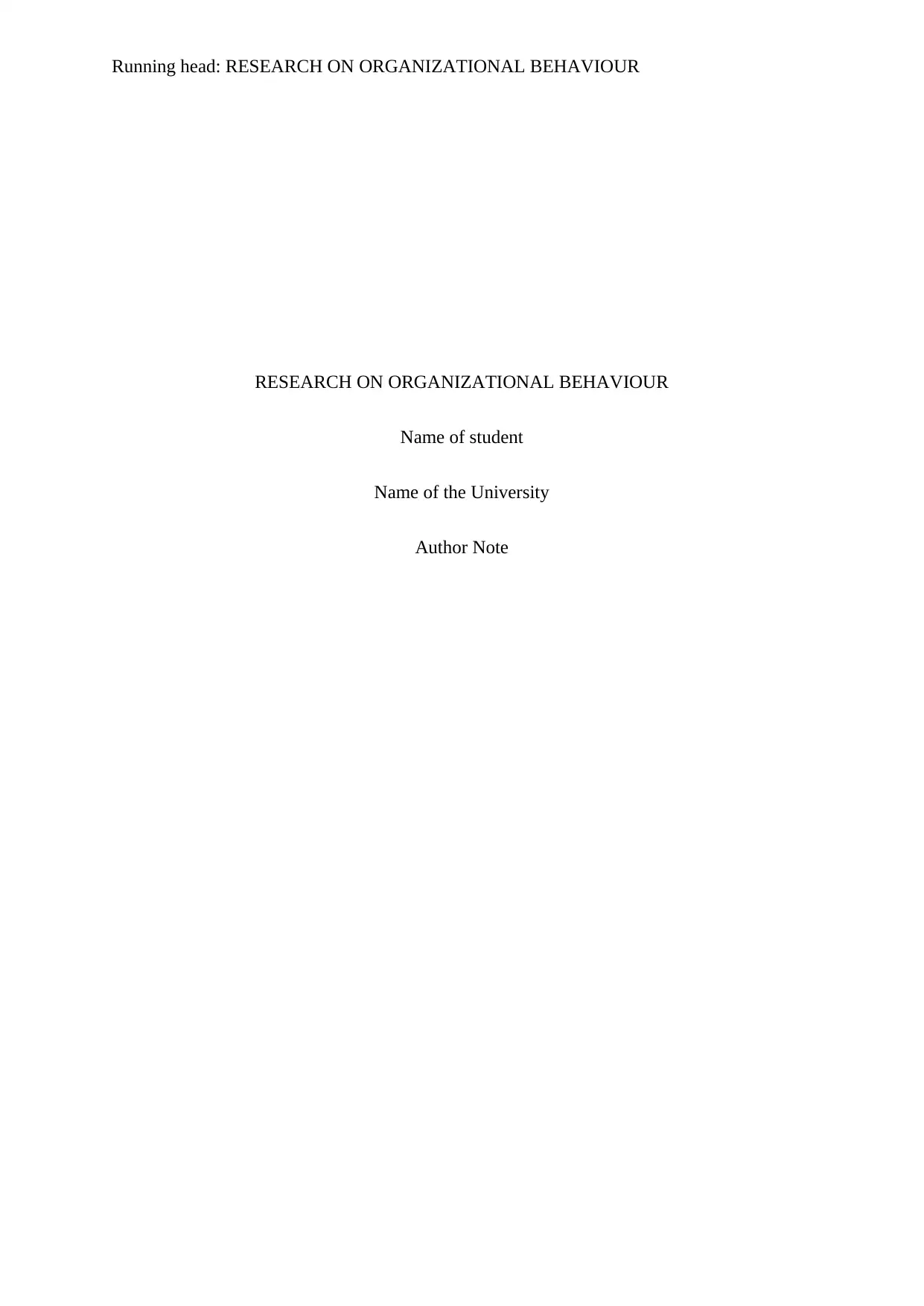
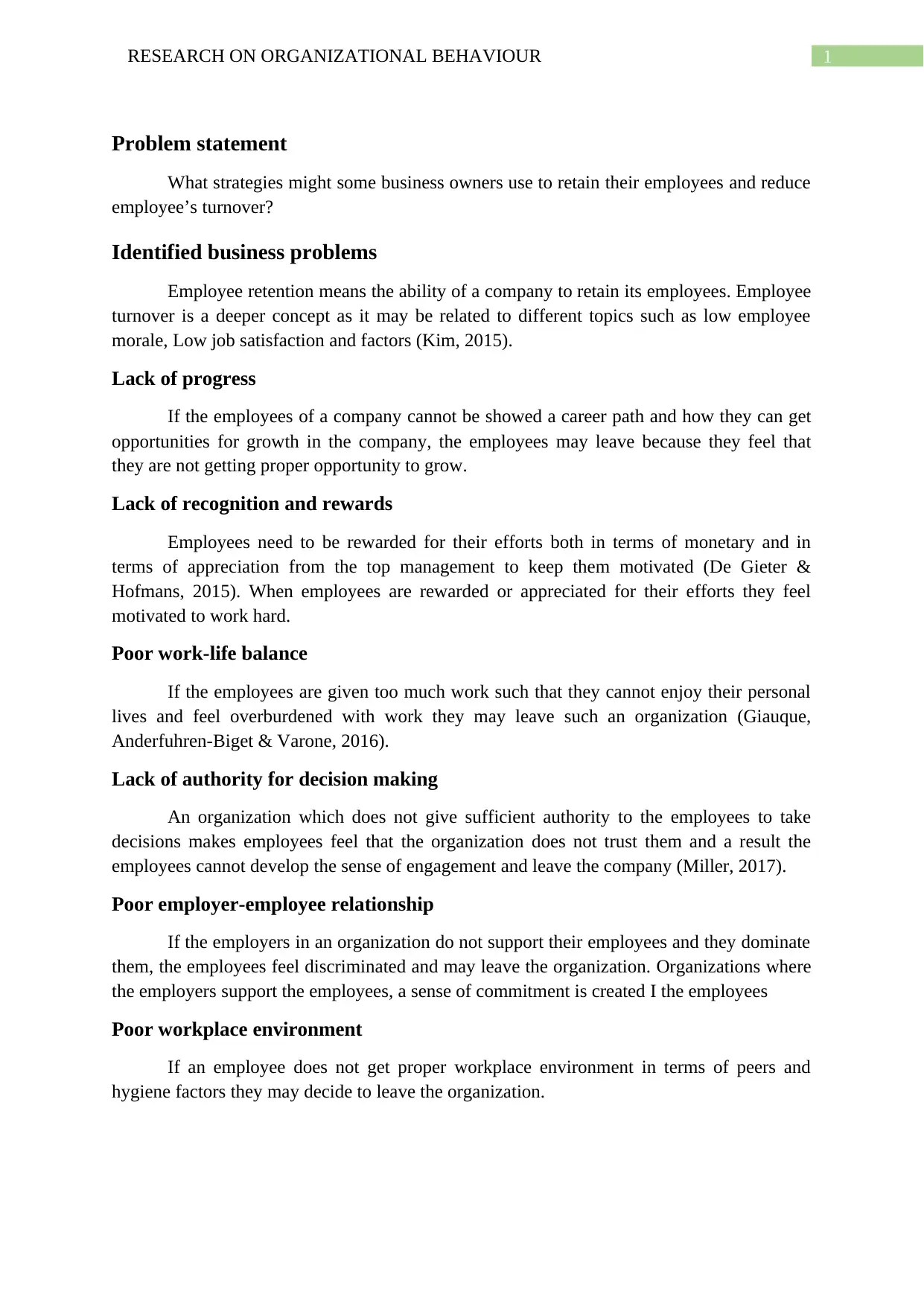
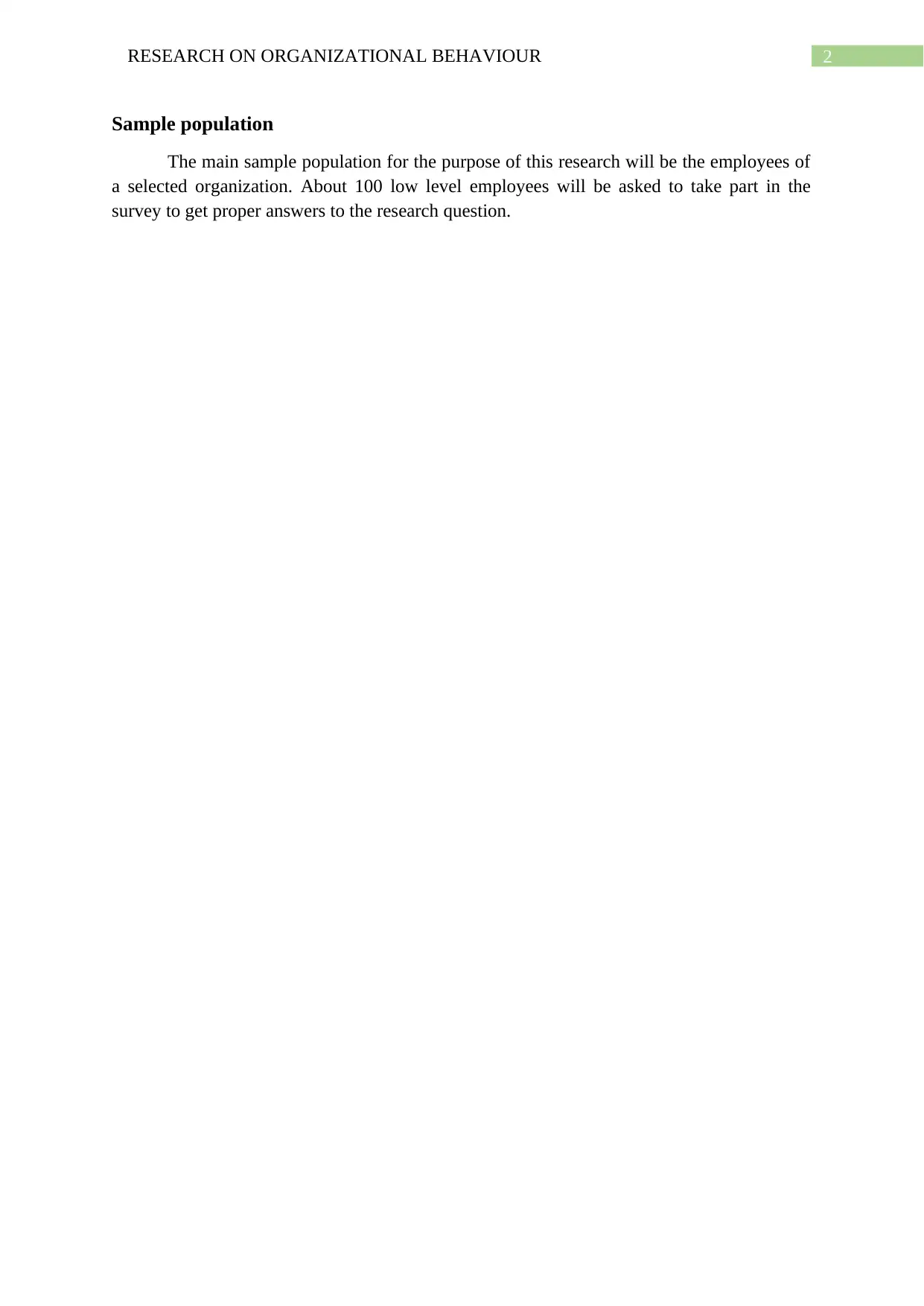

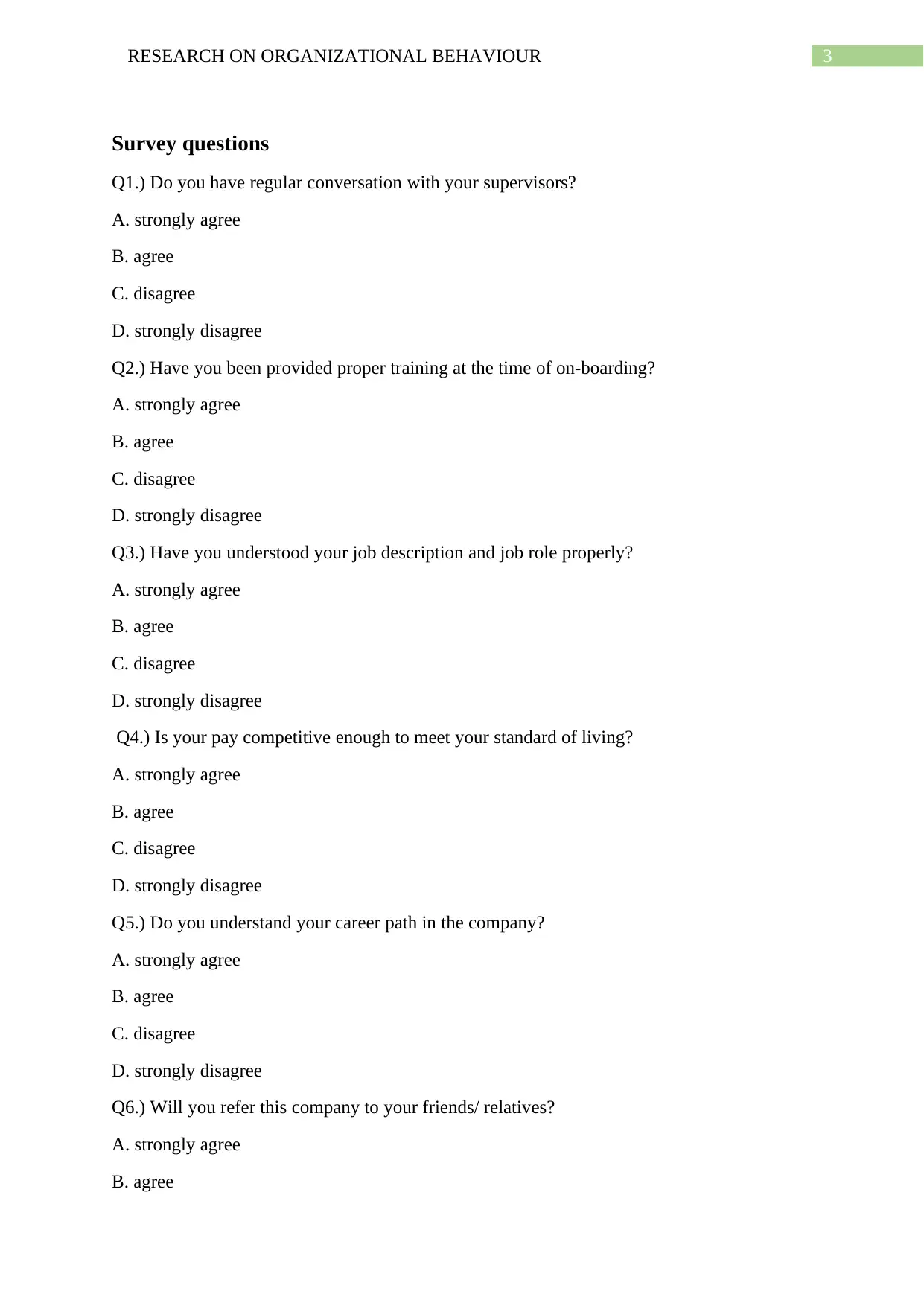
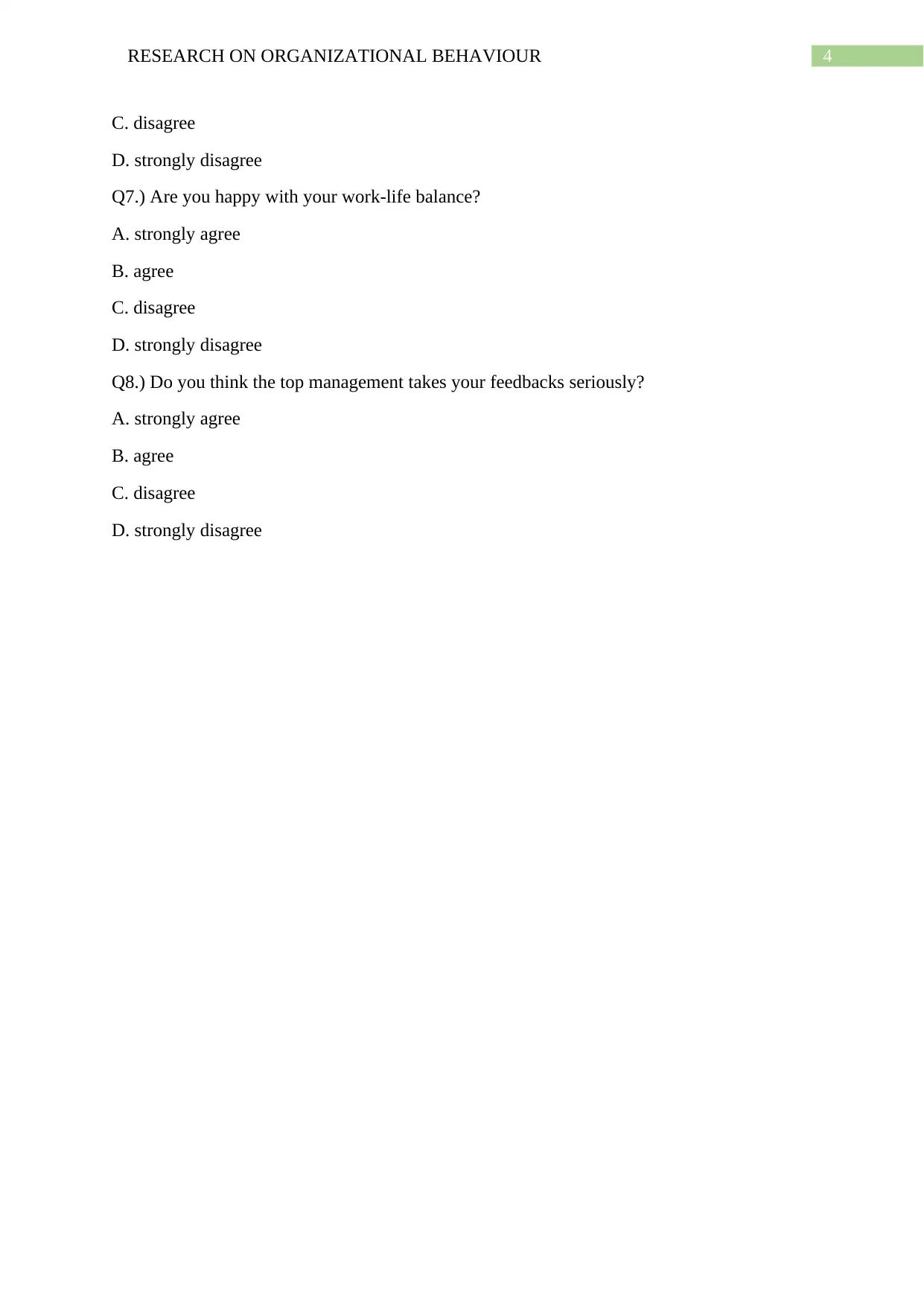
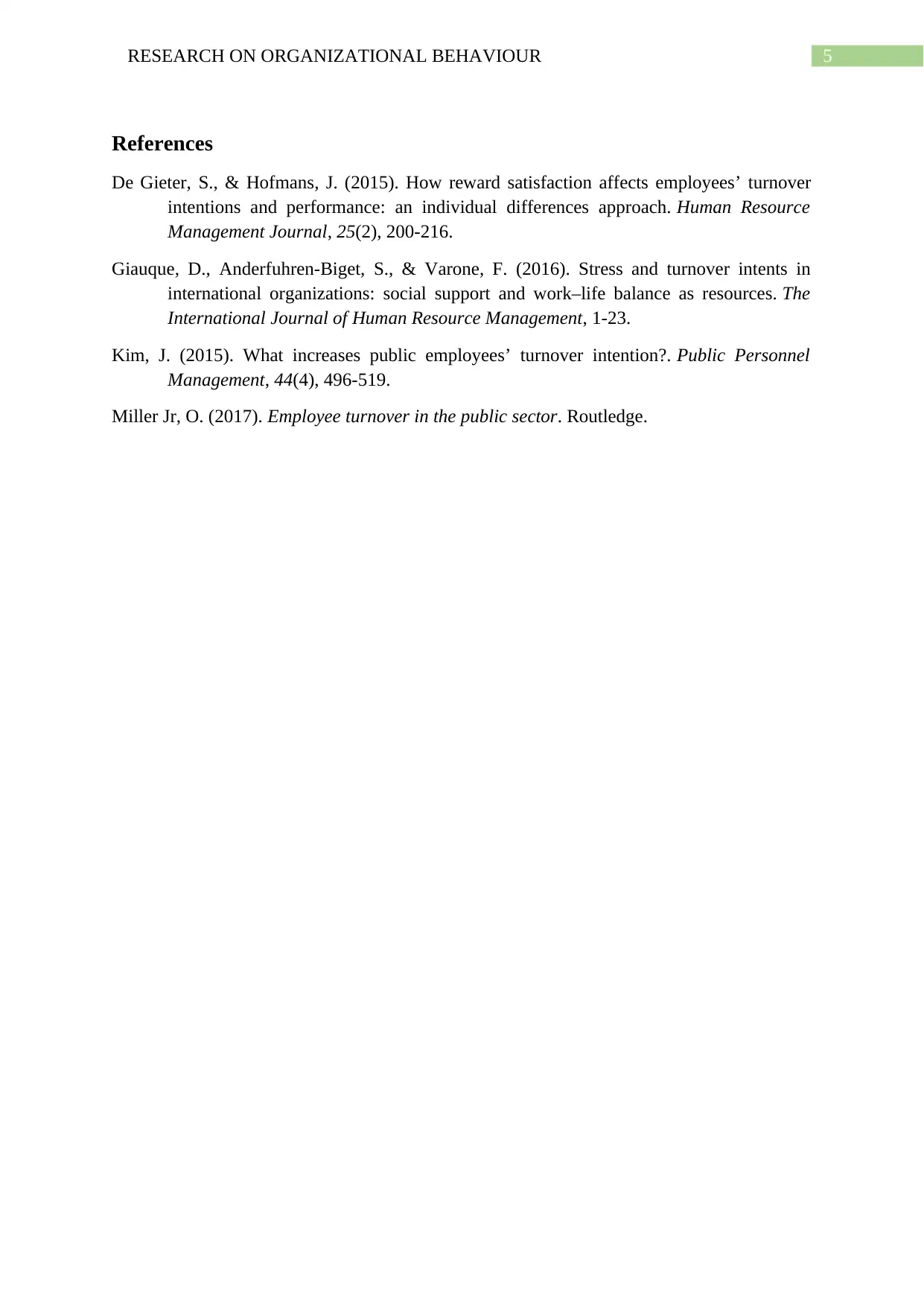






![[object Object]](/_next/static/media/star-bottom.7253800d.svg)